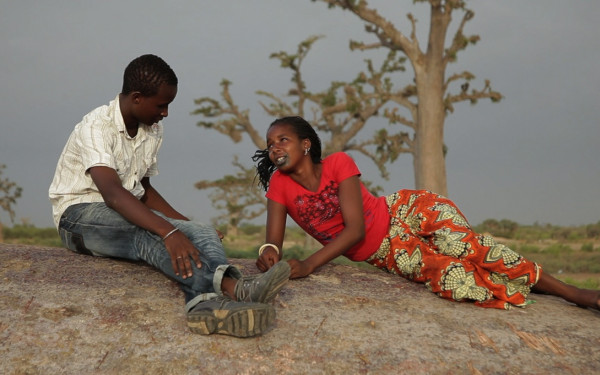Photojournalist Reports ‘Without a Parachute’
Marc Ellison Devotes Time and Compassion to Discovering Personal Stories from the Developing World
Marc Ellison takes his reporting seriously.
He says he believes in delving into the complexities and subtleties of the topics he covers, whether it is the status of refugees in South Sudan or education in Indian schools.
At a lecture at Concordia’s Loyola campus on Tuesday, over 50 curious journalism students filled the lecture hall as Ellison shared his most recent experience working with former child soldiers in Uganda.
Unlike so-called “parachute journalists,” who drop into unfamiliar areas to file assignments on deadline without getting a sufficient sense of the cultural landscape, Ellison spent three months in Uganda carefully capturing the personal stories of women who used to be child soldiers—like Mary and Alice, who experienced abduction and rape at the hands of Joseph Kony’s brutal Lord’s Resistance Army.
“You can only imagine interviewing these women given the subject matter and the incredible emotional, traumatic experiences they’ve been through,” Ellison said. “The advantage of post-war journalism is that you spend lots of time there—in my case, three months—and you begin to build a rapport with them, some sort of trust.”
Inspired by a documentary film called Born into Brothels, in which the filmmaker gives cameras to children living in the red light district of Calcutta, Ellison gave five women who represent diverse communities in Uganda their very own camera. He says his approach revealed an unprecedented view of the daily lives of these women and uncovered stories that would have otherwise not surfaced.
“I did my best to be respectful to these women and not look at this experience through a Western lens,” Ellison explained.
Concordia’s Department of Journalism hosted the lecture in partnership with the Aga Khan Foundation Canada. The AKFC, which supports sustainable development programs in Asia and Africa, came across one of Ellison’s stories for the Toronto Star and invited him to share his experiences with aspiring journalists across Canada, including at Concordia.
“We admire Marc’s approach; taking time to actually understand the context, not just parachuting in for a couple of days, but really involving the people that he covers,” said Rosemary Quipp, public affairs officer at AKFC. “That’s something that’s very important to us as an organization and the work that we do.”
Brian Gabrial, the chair of the journalism department at Concordia, says he feels it is important to expose students to the inspiring work of journalists like Ellison.
“I believe that journalists take risks in doing this kind of work, so it’s nice to have someone who is an example of that; someone who has taken risks and really does a good job of doing that kind of work,” Gabrial said.
Ellison returned to Uganda, one year later, to follow up with the women he interviewed in 2011. He says he intends on visiting again in the near future.
“It’s a project that I’m continually revisiting,” he said. “It’s become a huge part of my life and it’s so close to my heart.”

_900_675_90.jpg)



2_600_375_90_s_c1.jpg)
_600_375_90_s_c1.jpg)